Raymond Leppard - Rameau: Dardanus (1994)
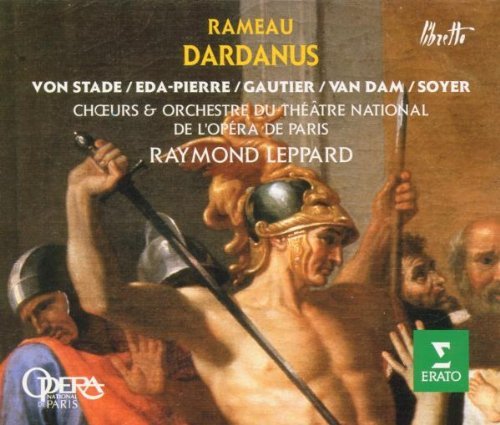
Artist: Orchestre du Theatre National de l'Opera de Paris, Raymond Leppard
Title: Rameau: Dardanus
Year Of Release: 1994
Label: Erato
Genre: Classical
Quality: FLAC (image + .cue, log, artwork)
Total Time: 01:58:53
Total Size: 619 MB
WebSite: Album Preview
Tracklist:Title: Rameau: Dardanus
Year Of Release: 1994
Label: Erato
Genre: Classical
Quality: FLAC (image + .cue, log, artwork)
Total Time: 01:58:53
Total Size: 619 MB
WebSite: Album Preview
CD 1
01. Ouverture
Act 1.:
02. "Cesse, Cruel Amour"
03. "Ma Fille, Enfin Le Ciel"
04. "Princesse, Apres L'Espoir"
05. "Manes Plaintifs"
06. "Par Des Jeux Eclatants"
07. "Mars, Bellone, Guidez Nos Coups"
08. Rigaudons I & II
09. "Guerriers, Je Remplirai"
10. Enteee Majestuese Pour Les Guerriers
Act 2.:
11. "Tout L' Avenir Est Present"
12. "On Vient C'Est Dardanus"
13. "Hatons-Nous, Commencons"
14. "Suspends Ta Brillante Carriere"
15. "Nos Cris Ont Penetre"
16. "Obeis Aux Lois Des Enfers"
17. "Quelqu 'Un Vient"
18. "Je La Vois"
19. "D' Un Penchant Si Fatal"
20. "Dardanus Gemit Dans Nos Fers"
CD 2
Act 3.:
01. "O Jours Affreux"
02. "Elle Gemit"
03. "Que L'On Chante"
04. Divertissements: Rigaudon I & II/ Menuets I & II
05. "Volez, Plaisirs, Volez"
06. "Chantons Tous"
07. "Cessez Vos Jeux"
Act 4.:
08. "Lieux Funestes"
09. "Ami Tendre Et Fidele"
10. "Malgre Le Dieu Des Mers"
11. "Par Un Sommeil Agreable"
12. "Un Monstre Furieux"
13. "La Gloire Vous Appelle"
14. "Ou Suis- Je"
15. "Voici Les Tristes Lieux"
16. "Mon Rival Va Perir"
Act 5.:
17. "Antenor Est Victorieux"
18. "Triomphez Heros Genereux"
19. "Chantons La Reine"
As with so many early operas, the first problem with Dardanus, Rameau's third and perhaps greatest tragêdie lyrique (though it isn't a tragedy), is to establish a workable text. It was originally produced in 1739 but later re-fashioned several times, and for a 1744 revival Rameau entirely rewrote the latter half of the work, even down to the plot, apparently being dissatisfied with its dramatic construction. Since beauties and weaknesses exist in both main versions, a conflation probably offers the best solution, and this is what Raymond Leppard has made. (It differs quite considerably from John Eliot Gardiner's performing version.) Inevitably a good deal has been jettisoned for this recording, for example the original Prologue and a number of dances and instrumental pieces (including, surprisingly enough, that which became Les Niais de Sologne for harpsichord); and Leppard's cuts and transpositions sometimes result in awkward keysequences. After the Overture in A major (disproportionately long with all the repeats), for instance, an F minor opening to Act 1 sits badly: another unconvincing moment due to keyjuggling is Venus's first appearance in G minor, following Dardanus's air in A (instead of Rameau's B flat).
Let us not be ungrateful, however. There is so much magnificent music in this improbable story, which includes star-crossed lovers (the Phrygian princess Iphise and her father's foe Dardanus, son of Jupiter), a benevolent magician and his enchantments, a ravaging monster (well before ldomeneo), knight-errantry and divine intervention; and L,eppard makes it tingle with life right from the outset, imparting his characteristically alert rhythmicality to the orchestra, inspiring his Paris choristers to put their hearts into it, and— no mean feat—getting his soloists to make a very fair shot at the unfamiliar technique of French baroque ornamentation. If I mention the orchestra first, it is because Rameau's scoring is outstanding. The musicians of his time complained that the work was so densely written that they hadn't time even to sneeze; but in fact the smallish orchestra is not overworked, and it is the skill with which it is handled that is responsible for its many striking effects: let me instance the scene in the magician's cave, the storm, the fight with the dragon, the high obbligato bassoon at the start of the prison scene and, immediately after, the cool spell of the flutes at the magician's entry. In the vocal writing the recitative (always melodious, unlike Italian recitativo secco) merges with the airs, in which, as in all French opera, the words are paramount. (Almost the only place where they go for nothing is the chorus's contribution to a rigaudon, which is a mere gabble.) Enunciation, from the whole cast, could scarcely be better.
Vocal honours here go to Jose van Dam as the magician Ismenor—noble in tone, with a fine ringing high register, and most impressive in his invocation of the supernatural powers—and to Christiane Eda-Pierre as a radiant Venus. It is well worth having to wait until Act 4 for her appearance, but she fully comes into her own in the last act: her entry there is a lovely moment, and she has an unusually florid final air (quite different in character from the rest of the opera). I have yet to hear Frederica von Stade sing other than intelligently and expressively, but the tessitura of her role here sounds rather high for her, and in Act 1 her vibrato is more marked than usual. Georges Gautier copes valiantly with the taxing title-role, whose high-lying nature makes a certain whiteness of tone almost inescapable. Michael Devlin makes a bluff warrior-suitor, at his best in Act 3; but those who remember Souzay's recording with Leppard of the Act 4 air "Monstre affreux" (Philips SAL3468, 10/64— nla) will appreciate what more lies in the part. The one unsatisfactory piece of casting is that of Roger Soyer as Iphise's father: not only does his voice sound dry and worn, but it contains no suggestion of terror or urgency when he brings news of the dangerous monster on his shores. His big martial duet with Antenor in Act 1 is singularly ineffective, and in this section the orchestra is allowed to overwhelm the voices.
Dardanus still remains all but unknown to the majority of opera-lovers; but let me urge them to sample its riches. Two spots alone may suffice to sway them: the movingly beautiful prelude to Act 3, leading to Iphise's air "O jour affreux", and the remarkable opening to the prison scene of Act 4. -- Gramophone [5/1981] review of original LP release, Erato 71416
Let us not be ungrateful, however. There is so much magnificent music in this improbable story, which includes star-crossed lovers (the Phrygian princess Iphise and her father's foe Dardanus, son of Jupiter), a benevolent magician and his enchantments, a ravaging monster (well before ldomeneo), knight-errantry and divine intervention; and L,eppard makes it tingle with life right from the outset, imparting his characteristically alert rhythmicality to the orchestra, inspiring his Paris choristers to put their hearts into it, and— no mean feat—getting his soloists to make a very fair shot at the unfamiliar technique of French baroque ornamentation. If I mention the orchestra first, it is because Rameau's scoring is outstanding. The musicians of his time complained that the work was so densely written that they hadn't time even to sneeze; but in fact the smallish orchestra is not overworked, and it is the skill with which it is handled that is responsible for its many striking effects: let me instance the scene in the magician's cave, the storm, the fight with the dragon, the high obbligato bassoon at the start of the prison scene and, immediately after, the cool spell of the flutes at the magician's entry. In the vocal writing the recitative (always melodious, unlike Italian recitativo secco) merges with the airs, in which, as in all French opera, the words are paramount. (Almost the only place where they go for nothing is the chorus's contribution to a rigaudon, which is a mere gabble.) Enunciation, from the whole cast, could scarcely be better.
Vocal honours here go to Jose van Dam as the magician Ismenor—noble in tone, with a fine ringing high register, and most impressive in his invocation of the supernatural powers—and to Christiane Eda-Pierre as a radiant Venus. It is well worth having to wait until Act 4 for her appearance, but she fully comes into her own in the last act: her entry there is a lovely moment, and she has an unusually florid final air (quite different in character from the rest of the opera). I have yet to hear Frederica von Stade sing other than intelligently and expressively, but the tessitura of her role here sounds rather high for her, and in Act 1 her vibrato is more marked than usual. Georges Gautier copes valiantly with the taxing title-role, whose high-lying nature makes a certain whiteness of tone almost inescapable. Michael Devlin makes a bluff warrior-suitor, at his best in Act 3; but those who remember Souzay's recording with Leppard of the Act 4 air "Monstre affreux" (Philips SAL3468, 10/64— nla) will appreciate what more lies in the part. The one unsatisfactory piece of casting is that of Roger Soyer as Iphise's father: not only does his voice sound dry and worn, but it contains no suggestion of terror or urgency when he brings news of the dangerous monster on his shores. His big martial duet with Antenor in Act 1 is singularly ineffective, and in this section the orchestra is allowed to overwhelm the voices.
Dardanus still remains all but unknown to the majority of opera-lovers; but let me urge them to sample its riches. Two spots alone may suffice to sway them: the movingly beautiful prelude to Act 3, leading to Iphise's air "O jour affreux", and the remarkable opening to the prison scene of Act 4. -- Gramophone [5/1981] review of original LP release, Erato 71416
Related Releases:
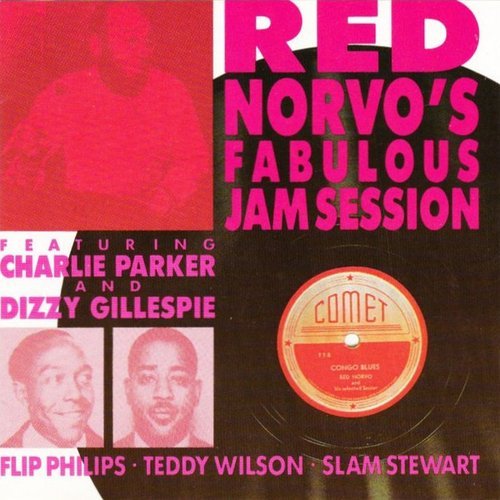
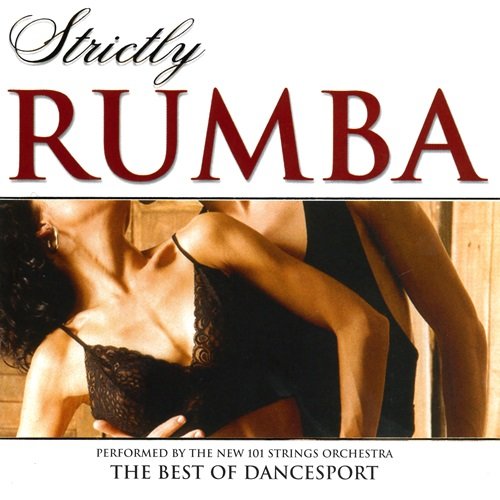
![Piero Piccioni - La Spiaggia - The Beach (Original Motion Picture Soundtrack) (2026) [Hi-Res] Piero Piccioni - La Spiaggia - The Beach (Original Motion Picture Soundtrack) (2026) [Hi-Res]](https://img.israbox.com/img/2026-02/03/uasuoa9tpx4fgqf2agcpx1qg3.jpg)
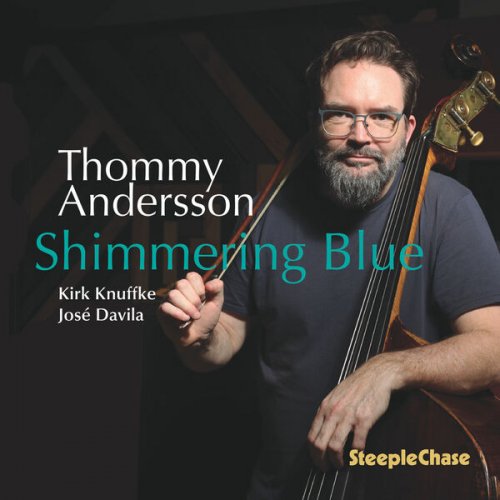
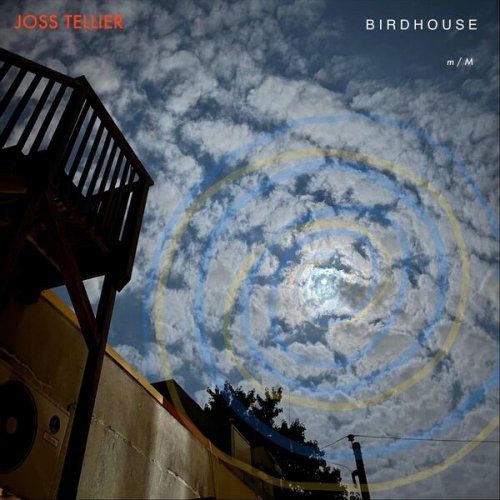
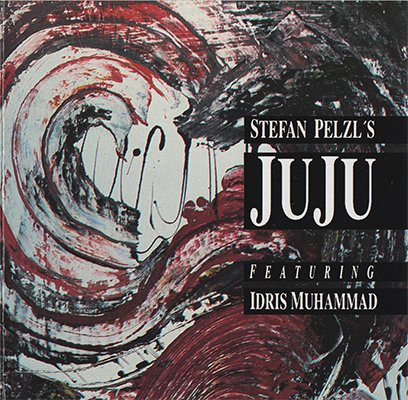
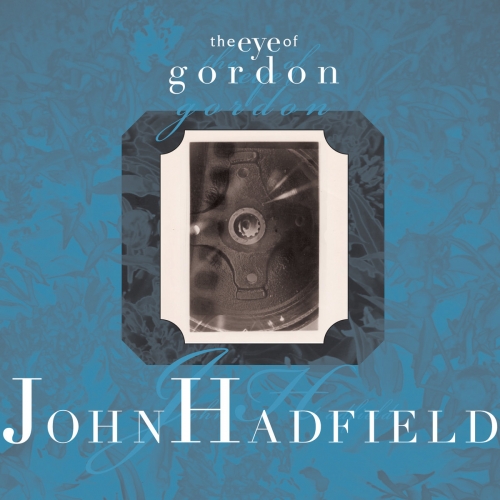
![Ari Bragi Karason - Unclear Family (2026) [Hi-Res] Ari Bragi Karason - Unclear Family (2026) [Hi-Res]](https://img.israbox.com/img/2026-02/06/yjelz9np21fbxv7fdk3vpg5p0.jpg)
